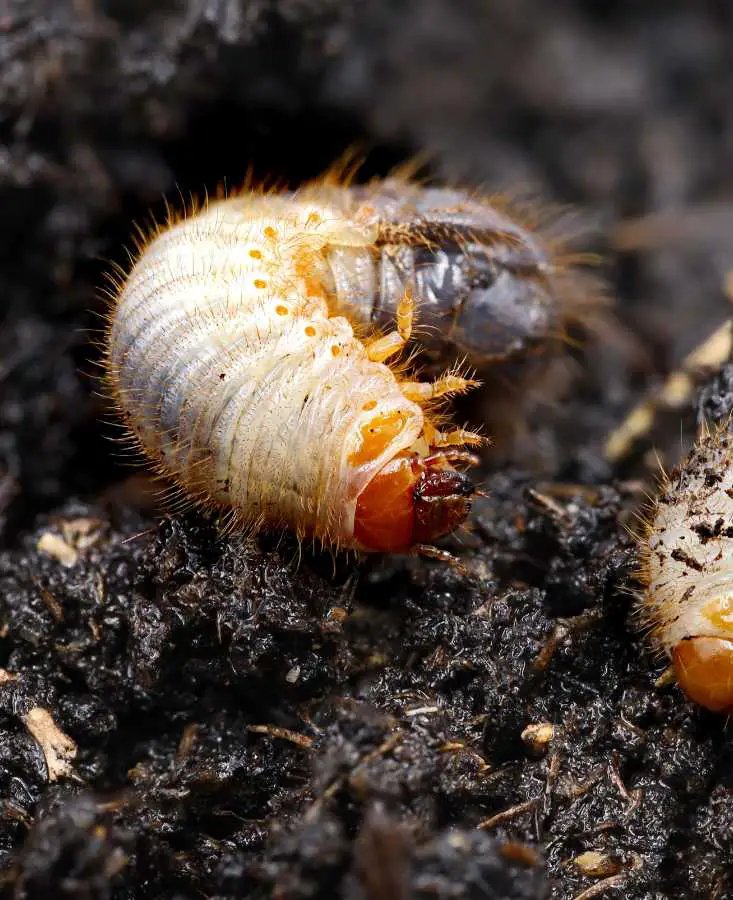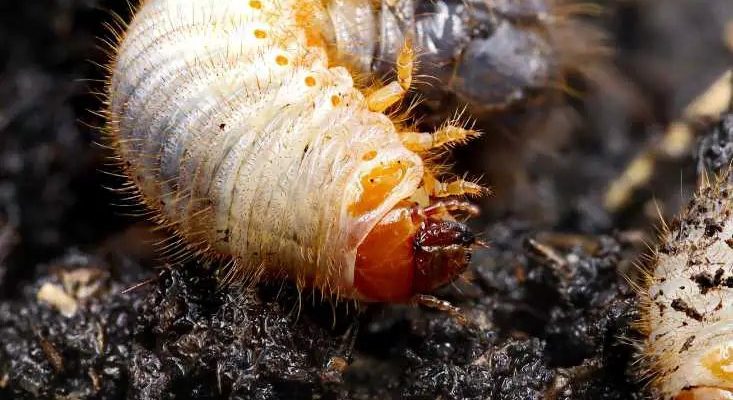
Grub worms, often the larvae of beetles or other insects, can make a surprise appearance in your compost pile. Some folks see them and panic, thinking they’ve got a bug issue on their hands. Others, however, aren’t so quick to judge. They may be curious about what these grubs mean for their compost. Are they helping break things down or causing more harm than good? Well, buckle up as we dig deeper into the world of grub worms and discover their role in the composting process.
What Are Grub Worms?
So, what exactly are grub worms? In simple terms, they’re the larvae of various insects, most commonly beetles. You might find them wriggling around, usually white or light brown, with a soft body and dark head. They thrive in moist environments, which makes compost piles an ideal home.
Grubs feed on decaying organic matter, breaking it down as they munch away. Think of them as nature’s little recyclers. They can transform your kitchen scraps and garden waste into nutrient-rich compost. But, not all grubs are created equal—some can become pesky pests later on, while others can genuinely aid your compost’s health.
You might be wondering, “How do I identify these critters?” Here’s a quick breakdown:
- Color: Mostly white or light brown.
- Size: Typically 1 to 2 inches long.
- Body Shape: Soft, curved, with a darker head.
Are Grub Worms Beneficial for Compost?
Here’s the thing: grub worms can actually be quite beneficial for your compost pile. They help break down organic materials, which is essential for creating nutrient-dense compost. As these little guys munch on your kitchen scraps, they reduce the size of the waste, speeding up the decomposition process.
Imagine your compost pile as a busy restaurant kitchen. Grub worms are like the dishwashers, cleaning up the mess so the chefs can continue cooking. They help ensure that everything post-dinner (or post-composting) gets recycled efficiently.
Moreover, the way grubs work can enrich your compost with beneficial microbes, helping foster a thriving ecosystem in your compost pile. So, instead of viewing them as intruders, think of them as allies in your composting journey.
Potential Downsides of Grub Worms
Despite their benefits, not everything about grub worms is sunny. Depending on the species, some can turn into adult beetles that might feast on your garden plants. This could be a problem if you’re trying to grow veggies or beautiful flowers.
In vast numbers, they can also indicate an imbalance in your compost pile. Overly moist compost can attract grubs and encourage them to multiply. If you notice a sudden influx of these critters, it might signal that your compost is too wet and needs some air and dryness.
It’s a balancing act. While grubs can be beneficial, it’s crucial to monitor their population. A few is fine; a swarm could mean it’s time to troubleshoot your composting technique.
How to Manage Grub Worms in Your Compost
If you’re feeling a bit overwhelmed by grubs in your compost, don’t fret! Managing them is easier than you might think. Here are some steps to keep everything in check:
1. **Monitor Moisture Levels**: Check your compost’s moisture. Ideally, it should feel like a damp sponge. If it’s too wet, add dry materials like straw or shredded paper to balance things out.
2. **Aerate Regularly**: Turning your compost pile helps it breathe. This process not only speeds up decomposition but also controls temperatures that can discourage excessive grub populations.
3. **Limit Food Additions**: If you notice too many grubs, try reducing the amount of kitchen scraps you’re adding for a bit. This can help manage their numbers until your compost regains balance.
4. **Encourage Beneficial Predators**: Invite natural predators into your garden, like birds and beneficial insects. They can help keep grub populations in check.
By keeping an eye on these factors, you can enjoy the benefits of grubs without letting them become a nuisance.
Comparing Grub Worms to Other Compost Contributors
You might be curious about how grub worms stack up against other compost critters. Let’s take a quick look at how they compare:
- Earthworms: Often considered the stars of the composting world, earthworms aerate the soil and further break down organic matter. While grubs are helpful, earthworms usually get more kudos for their work.
- Beneficial Microbes: These tiny organisms are essential for decomposing matter. They work hand-in-hand with grubs, so a healthy compost pile usually has a mix of both.
- Ants and Beetles: While some beetles can become a nuisance, certain species can help with decomposition. Ants can also aerate and improve the structure of your compost.
The ideal compost pile includes a variety of organisms, each playing a unique role. Grub worms might not be the top performers, but they do add value to the mix.
When Should You Worry About Grub Worms?
You might start to worry about grub worms in your compost if you notice a few tell-tale signs. For instance, if they start appearing in large numbers, it may indicate that your compost is too wet or lacking in structure.
Another red flag: if you see them migrating to your garden soil, it could mean they’re ready to turn into beetles. Before you panic, though, it’s good to assess the overall health of your compost.
Here’s what to look for to avoid issues:
- Large clusters of grubs.
- Signs of damage to your garden plants.
- Strong odors from the compost pile (this can indicate a problem).
If you notice these signs, it might be time to adjust your composting practices.
So, are grub worms in compost piles good or bad? Honestly, it depends on how you manage them. They can be valuable allies, breaking down organic matter and enriching your compost. However, unchecked populations can cause trouble, especially when they turn into beetles that might nibble on your garden plants.
The key takeaway? Regularly monitor your compost, manage moisture levels, and embrace a diversity of critters. By understanding and respecting all the players in your composting game, you’ll create a thriving environment—both for your compost and your plants. So next time you spot a grub worm, give it a nod. It might just be helping turn your kitchen scraps into gardening gold.

